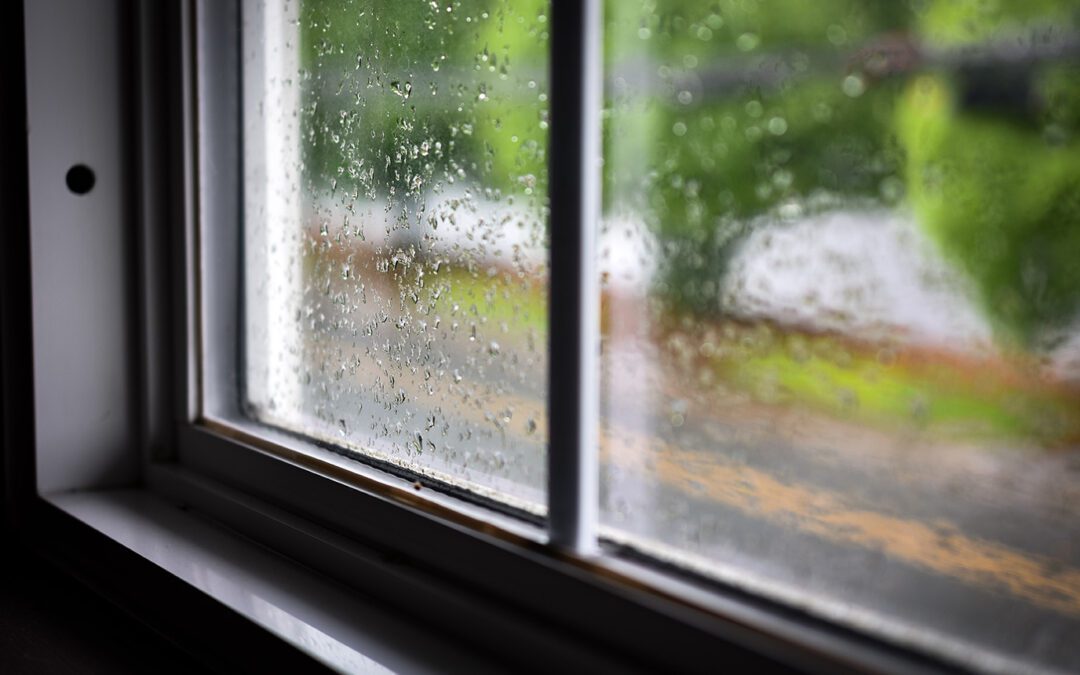6 Signs that it’s Time to Replace Your Windows
Unlike roofing and siding, which often show visible signs of wear and tear, it can be difficult to tell when the efficiency of your windows has started to fail. Like the rest of your home’s exterior, windows don’t last forever. How do you know when it’s time for a replacement?
Your windows play a big part in protecting your home from the exterior elements. Old or damaged windows can lead to poor insulation, higher electricity bills, or even water damage from leaks. Additionally, single-pane windows that were the standard over a decade ago are significantly less energy efficient as modern double-pane windows.
As a general rule, the average home window has a lifespan of 15-20 years before the seals start to weaken and fail. Keep an eye out for any of these symptoms to tell when it’s time to say out with the old:
Visible Damage
If you can see any cracked, chipped, or otherwise visibly damaged panes, it’s incredibly important to replace the window as soon as possible. A cracked window is weakened and likely to break completely, leading to further damage to your home. Should the window fail, it leaves your home exposed to the elements including water, mold and mildew, and pests such as bugs or rodents.
Be sure to check not only the glass pane of the window, but also the frame for any cracks, rust, rot, or other cosmetic damage.
Faded Carpet & Furniture
Older windows didn’t come equipped with UV protection that’s standard on modern windows. New windows use low-emissivity (low-E) glass which includes a microscopic film that prevents UV rays and solar heat from passing through. Not only does this help keep your home cool in the summer, it also protects your curtains, carpet, and furniture from fading in the sun.
If you’re tired of everything becoming sunbleached and overall less energy efficient windows, it’s time for a replacement.
Condensation on the Glass
If you have condensation on the outside of your windows, then it’s nothing to worry about. Condensation buildup on the inside usually means that the window is leaking and your indoors is more humid than the outdoors. If you have double-pane or triple-pane windows, you might also notice condensation between the panes of glass. This is a signal that the seals on these windows have failed and the insulating gas between them has escaped.
Spotting condensation anywhere other than on the outside of your home is a clear sign that it’s time for a replacement. At that point, you should plan to replace the windows as soon as possible.
Feeling a Draft
If you’ve noticed that your windows allow more warm air to enter your home during the summer, then you may have a poor seal. It may be just one room that’s chronically uncomfortably warm or cold depending on the season, or maybe it’s the whole house. You may also notice that you have to crank your HVAC system up to feel any difference being made.
An easy way to check for drafts is to close your window completely and make sure it’s locked. Hold your hand where the window sash meets the frame, either at the bottom or the top. If you can feel air coming in, you have a draft.
Noisy Outdoors
Modern double-pane or triple-pane windows are significantly better than old single-pane windows at dampening sounds from the outdoors. Whether it be from noisy neighbors or living near busy roads or train tracks, new windows can help soundproof your home with their enhanced insulation.
Mysteriously Higher Bills
If all of the climate controlled air that you’re trying to pump into your home is just escaping through faulty windows, then you should notice that your energy bills are higher than they used to be.
That said, it’s important to rule out any other possible explanations. Your utility provider may have increased their rates, misread or misestimated your meter, or simply made a mistake. Other culprits may be found in your own home, such as aging appliances or appliances that are still plugged in and not being used.
When you’ve debunked all other options, the old windows are the culprit and need to be replaced before they cost you any more.

